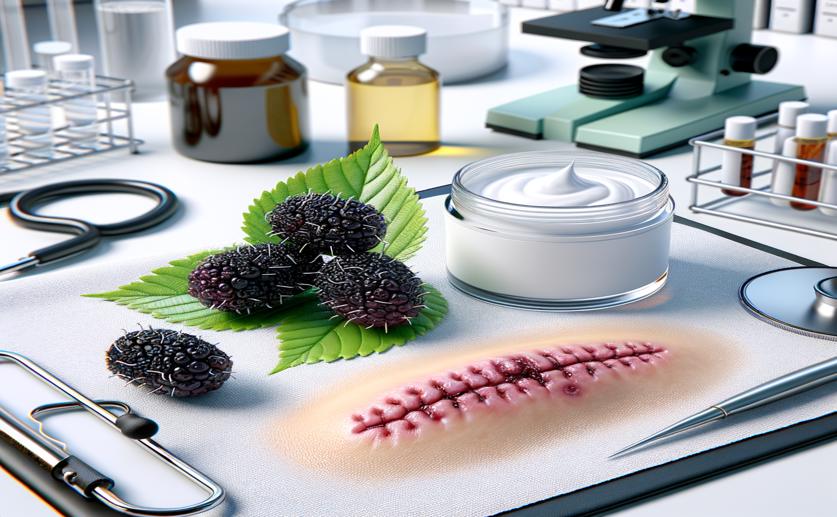
Black Mulberry Fruit Ointment Speeds Up Wound Healing: Lab and Real-Life Study
Greg Howard
15th May, 2024

Image Source: Natural Science News, 2024
Key Findings
- The study from Islamic Azad University, Rasht, found that unripe black mulberry (Morus nigra) fruit extract has strong antimicrobial properties
- An ointment with 8% of this extract significantly reduced wound areas in rats and made microbial loads uncountable after six days
- The extract also modulated inflammatory responses, decreasing pro-inflammatory genes and increasing anti-inflammatory genes, without harming human fibroblast cells
References
Main Study
1) Facilitation of infectious and non-infectious wound healing using Morus nigra fruit extract ointment: An in vitro and in vivo study.
Published 13th May, 2024
https://doi.org/10.1016/j.intimp.2024.112230
Related Studies
2) Preparation and characterization of chitosan/gelatin/PVA hydrogel for wound dressings.
3) Transition from inflammation to proliferation: a critical step during wound healing.
4) The Therapeutic Wound Healing Bioactivities of Various Medicinal Plants.
5) Enhancement of cell migration and wound healing by nano-herb ointment formulated with biosurfactant, silver nanoparticles and Tridax procumbens.



 6th February, 2024 | David Palenski
6th February, 2024 | David Palenski